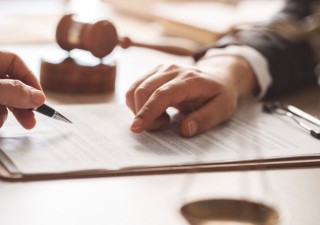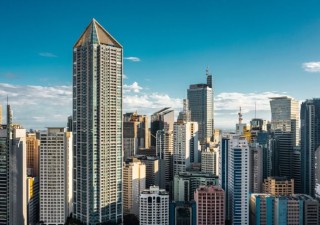uCloudlink Group announces progress in patent infringement disputes
10 May 2021

On April 19, 2021, uCloudlink Group announced the latest positive developments in its patent infringement disputes with SIMO Holdings, a global provider of wireless technology products and solutions, in the United States.
In 2018, SIMO sued Hong Kong uCloudlink Network Technology and uCloudlink (America), (collectively “uCloudlink Entities”) for infringing its US Patent No. 9,736,689. The US District Court for the Southern District of New York (SDNY) found for SIMO and ordered uCloudlink Entities to pay damages amounting to US$8,230,654. In addition, SDNY issued a permanent injunction, enjoining uCloudlink Entities from selling certain models of Wi-Fi hotspot devices in the US.
Believing the trial judge erred in the construction of SIMO’s patent claims, uCloudlink Entities appealed the SDNY decision to the US Court of Appeals for the Federal Circuit. Pending decisions of the Federal Circuit, uCloudlink Entities had placed an amount equal to the damages ordered by SDNY in escrow.
On January 5, 2021, the Federal Circuit reversed the SDNY decision and held that “uCloudlink Entities are entitled to summary judgment of noninfringement.” Subsequently, SIMO filed a petition for panel rehearing and rehearing en banc on February 4, 2021, which was denied by the Federal Circuit on March 11, 2021. On March 29, 2021, the escrowed funds were fully refunded to uCloudlink Entities.

On April 8, 2021, SDNY issued an order lifting the injunction against the products of uCloudlink Entities. As a result, uCloudlink’s manufacturing and selling of Wi-Fi hotspot devices in the US will no longer be restricted and affected.
“In the US, patent claims are construed as a matter of law, which means that the construction can be attacked on appeal under a more favourable standard of review for the appellant than an attack on findings of fact, for which the court of appeals will be more deferential to the trial court,” says Christopher Rourk, a partner at Jackson Walker in Dallas. “In particular, an appeal on an issue of law is reviewed ‘de novo,’ which means that no deference is given to decisions made by the trial court.”
“Overall, the Federal Circuit affirms a decision of a district court in whole or in part over 80 percent of the time. Because there are often multiple issues involved in a decision by the Federal Circuit, it is difficult to estimate the affirmance rate for claim construction issues alone, but some sources indicate that it is slightly easier to prevail on a claim construction issue than issues such as infringement,” Rourk says. “In uCloudlink v. SIMO, the Federal Circuit reversed both on claim construction and infringement, based on the failure of SIMO to identify a triable issue on a fact question that was relevant to infringement in response to a summary judgment motion that was filed by uCloudlink, regardless of how the claim construction issue was decided. This outcome is a good example of how multiple issues can be decided on appeal but where prevailing on one issue might have no bearing on the outcome of the other issues.”
“The specific claim construction issue that the Federal Circuit reversed the trial court on was whether the term ‘a plurality of memory, processors, programs, communication circuitry, authentication data stored on a subscribed identify module (SIM) card and/or in memory and non-local calls database’ requires ‘a plurality of’ each component in the list, including ‘non-local calls database,’” he says. “In reaching that decision, the Federal Circuit reviewed a number of issues in detail, and it would require an extensive analysis of each issue to identify areas where the decision is on solid ground and areas where the decision might be reversed, such as by the Federal Circuit sitting en banc or by the Supreme Court, either of which is fairly unlikely (although not impossible). For that to happen, SIMO would have to seek further review, and it is possible that the parties might reach a negotiated settlement prior to that happening. In general, it is difficult to get a decision of a panel of the Federal Circuit reviewed en banc of by the Supreme Court.”
Johnny Chan






